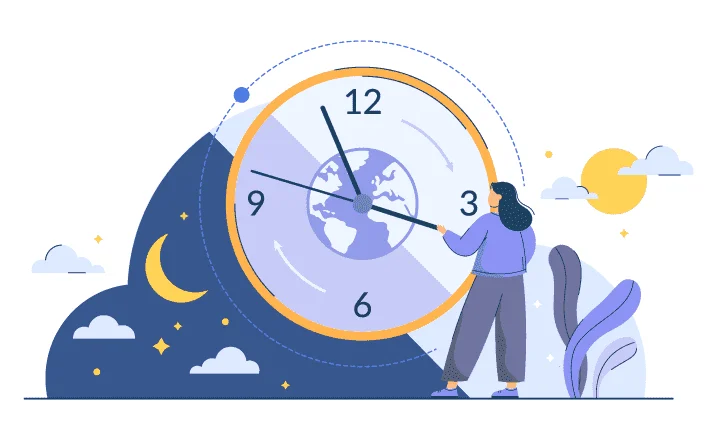Circadian Rhythm and Health
Almost all species living in our planet exhibit daily changes in their behavioural and physiological patterns - not merely induced by the earth rotating on its axis but arises from a "timekeeping system" within the organism -- this timekeeping biological system is extremely sophisticated! We, humans, have given this light and no-light cycle a 24-hour clock that has been helpful in our everyday life-routines.
The timekeeping system, or let’s call it a "biological clock,” allows us to anticipate and prepare for the changes in the physical environment that are associated within a day-and-night cycle (of 24 hours), thereby ensuring that we do the right thing at the right time of the day. This biological clock also provides internal organisation and ensures that internal changes take place in coordination with one another.
My focus in this article is on a 24-hour cycle or a daily cycle known as a "circadian rhythm". The term “circadian” derives from the Latin phrase “circa diem,” which means “about a day.” The field of chronobiology address mechanisms underlying the biological timekeeping systems and the potential consequences of their failure. Chronobiology looks into longer than 24-hour cycles, example reproductive cycles - which could be monthly in humans to even annually in other species
The circadian rhythm relies on a circadian timing made up of biological clocks. These biological clocks are composed of a central circadian clock - a "master clock", the suprachiasmatic nuclei (SCN) in the brain, and several peripheral clocks that reside in every organ in our body. Stimulation or activation of the circadian rhythm is mainly regulated by light, but can also be influenced by, for example, feeding schedules and exercise. The SCN sends messages to the peripheral clocks and regulates their organ-attached-functions, such as:
• Hormone regulation
• Thermogenesis
• Immunity
• Metabolism
• Reproduction
• Fat storage
• Stem cell production
In simple terms, "all is well" when all the clocks are synchronised!
So, why am I so interested in this circadian rhythm? What happens to us if this circadian rhythm gets disrupted, and should we be worried?
Since the circadian rhythm plays a very important role in the normal maintenance of organisms, physical and psychological influences including jet lag, shift work, and diseases can cause a misalignment of the intrinsic clocks. For example, shift-work, which is common phenomenon, where people work through the night until the morning introduces risks in acquiring cancer, cardiovascular disease, depression, and infertility
It is, therefore, high time that we look into this crucial basic biological phenomenon and incorporate changes in our lives, so that we do not end-up having dreaded diseases that can be easily avoided.
We can certainly start with:
• Sleeping well, and on time.
• Eating right, when needed.
• Exercising right - not too much.
By Dr. Jeethan Bendoor
